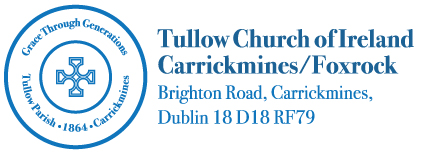‘I give you a new commandment, that you love one another. Just as I have loved you, you also should love one another. By this everyone will know that you are my disciples, if you have love for one another.’ John 13:34,35 (R.S.V.)
Our Revised Common Lectionary readings for last Sunday (28th April) contained the above passage. At first glance, it appears neither revolutionary nor innovative – and yet it is decidedly both! It is revolutionary in that it was announced to a world that lived by “an eye for an eye” and “a tooth for a tooth”. It is innovative in that although the Old Testament gave us the twin instructions to “Love God and Love your neighbour”, Jesus goes much further and tells us that love for one another is what uniquely defines us as his disciples and helps to spread his Gospel by actions rather than mere words.
To clarify, it needs to be pointed out that the definition of “love” in this instance is not the mushy, emotional and sentimental meaning that is commonly portrayed and exploited by mass media. Instead, its meaning is the concern , respect and dignity that we ought to have and show for all humanity as God’s children. This definition, in turn, is the basis for the answer Jesus gave to the question, “who is my neighbour?”
One of the controversial items that was ruled outside the remit of our Easter General Vestry meeting, (but discussed “ex-agenda”), was the liturgical practice of Exchanging the Sign of the Peace. An undertaking was given that this would not happen at all Services. However, the exchange of peace has been part of the Church of Ireland experimental liturgies since the early 1970’s. It was made more formal in the Eucharistic Liturgy of the alternative Prayer book 1985 and in the Book of Common Prayer 2004, was made an integral part of a much wider array of Pastoral liturgies including Marriage, Confirmation, Baptism, Ordination, Wholeness and Healing, etc. Whilst there is an understanding that this practice can sometimes be awkward for those unaccustomed to it, once must pose the question, what does our refusal to participate in exchanging the peace say about our love for our neighbour? What does it say about our stated desire to be a warm, open, friendly and inviting Church community? Perhaps we will need to explore the answers to these questions further.
General Synod will convene in the City Hotel, Armagh between 9th and 11th May. Included in this year’s agenda is a follow-on to the “Human Sexuality in the Context of Christian Belief” debate. A central Church committee will be set up and in addition, a series of Tripartite Diocesan conferences will be held in the Autumn. The conference relevant to these united dioceses will be held in Armagh on Saturday 19th October and will also include delegates from Derry & Raphoe and Armagh. Delegates from these dioceses will include members of Diocesan Councils, Mothers’ Union, 3 Rock and Diocesan Council for Mission. The main theme of this conference will be “living with diversity” with integrity to interpretations of Scripture and the Church Traditions. Let us pray that despite the wide spectrum of viewpoints held that all delegates will continue to show love for one another.
Another topic on this year’s agenda is the thorny subject of clergy pensions. Like most similar pension schemes in the present climate, the clergy pension fund is currently in significant deficit. There have been a series of information seminars for clergy on this subject around the country over the past couple of weeks which has been highlighted and reported in the Press. However, it is intended that firm proposals to address this situation will be presented to, and voted on by Synod. In this regard, two of our Tullow parishioners – Mr. Terry Forsythe and Dr. Bob Willis – have made significant contribution to the new proposals and on behalf of the wider Church, we record our thanks to them for their efforts and input.
With every blessing,
John.
Revd. John Tanner. Tel: 01-289 3154 / 086 302 1376
